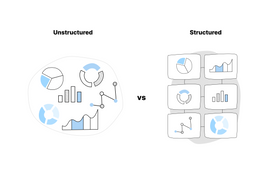Federated Search vs. Unified Search: Compare the Differences
Federated Search and Unified Search are two search techniques that take different approaches to crawling, indexing, and presenting data. Learn more here.
Updated March 30, 2023
In today's technologically advanced world, users are increasingly expecting search engines to provide faster results and more comprehensive information for better document management.
How is this being addressed? With search engine technologies like federated and unified search.
And what’s the difference between the two?
Let’s find out.
What Is Federated Search?
Federated search is a technique for searching multiple information sources at once. The federated search engine achieves this by examining the metadata of each source to create a catalog of all the information available. Federated search tools allow users to specify the sources they would like to search, as well as the keywords they would like to use. The results are then combined and displayed in one interface.
For further context on federated search, check out our complete guide to federated search here.
What Is Unified Search?
Unified search is a term used to describe the ability to search for information across multiple data sources, platforms, and applications. This can include both internal and external data sources, such as the company's intranet and the internet. Unified search makes it possible to find information quickly and easily, regardless of where it is located.
Although federated search and unified search sound very similar, there is a clear distinction between the two.
With federated search, each data source is searched separately, and the results are then combined and presented to the user. With unified search, all the data sources are searched simultaneously. For this reason, unified search is often seen as being more efficient than federated search, as it reduces the number of steps that need to be taken in order to find information that matches a searcher's intent.
For a different comparison, take a look at Federated Search vs. Enterprise Search.
Related Articles

Confluence Search Sucks. Here Are 3 Things You Can Do to Improve It Using Unleash
Roy Shaked
May 16, 2023

Can a Great Intranet Search Really Support a Better Employee Experience?
Noam Limor
April 7, 2022

A Beginner’s Guide to Improving Document Management
Kelli Harris
May 24, 2022

How Enterprise Search Improves Sales Productivity In The Team
Noam Limor
August 21, 2023

Structured vs. Unstructured Data: Which One Gives Better Insights?
Marcel Deer
June 29, 2023
Related Posts
Brody Hall
